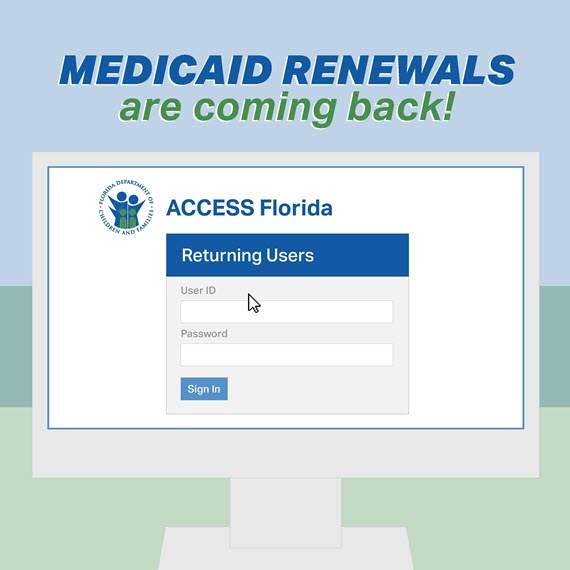The Florida Department of Children and Families uses social media to connect with families and individuals to share information, safety tips, and more. The graphics and messaging below are for sharing on social media to support DCF’s mission of protecting the vulnerable, promoting strong and economically self-sufficient families, and advancing personal and family recovery and resiliency. For questions or requests, please contact @email.
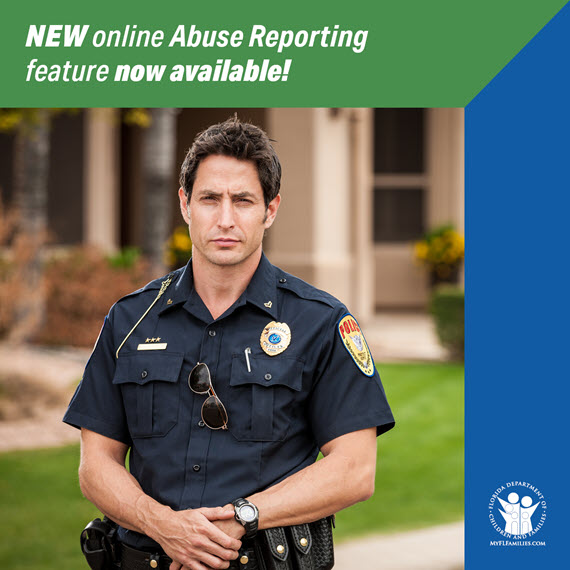
Report Abuse Online
Important messages to share
- Reporters can receive a confirmation email to use as verification documentation. Visit FloridaAbuseHotline.gov for your reporting needs.
- No need to wait on hold to report abuse – DCF’s online reporting features allow you to receive a confirmation email with appropriate details to use as documentation. Visit FloridaAbuseHotline.gov to report child and adult abuse.
- Mandatory reporter in Florida? It’s easier than ever to report suspected abuse online. Reporters will receive a confirmation email saying if their report was accepted for investigation or not, as well as the I.D. of the abuse counselor that reviewed the report (FloridaAbuseHotline.gov).
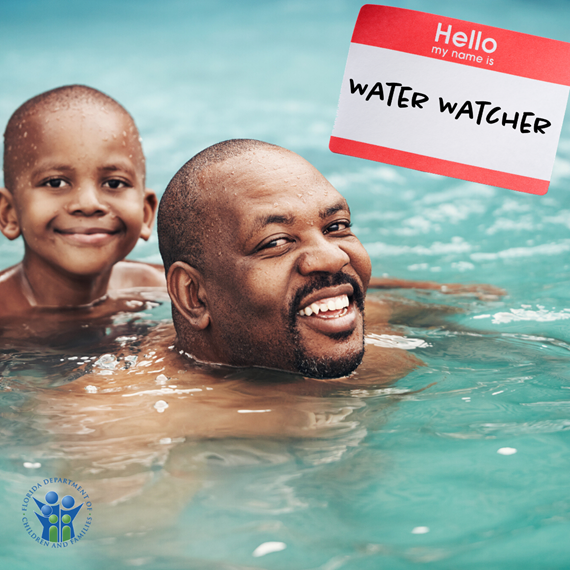
Water Safety
Important messages to share
- May is #NationalWaterSafetyMonth! With summer just around the corner, it’s important to learn how to keep your child safe around water. For more information, visit www.poolsafely.gov.
- Teaching children to swim and practice water safety can significantly reduce their risk of drowning. For more information on where you can find swim lessons for your child, visit https://www.redcross.org/take-a-class/swimming/swim-lessons.
- Many pool-related drowning accidents can be prevented with the installation of barriers, such as fences, door alarms, and pool covers, which add extra layers of protection to keep your child safe. For more information, visit http://www.watersmartfl.com/layers.html.
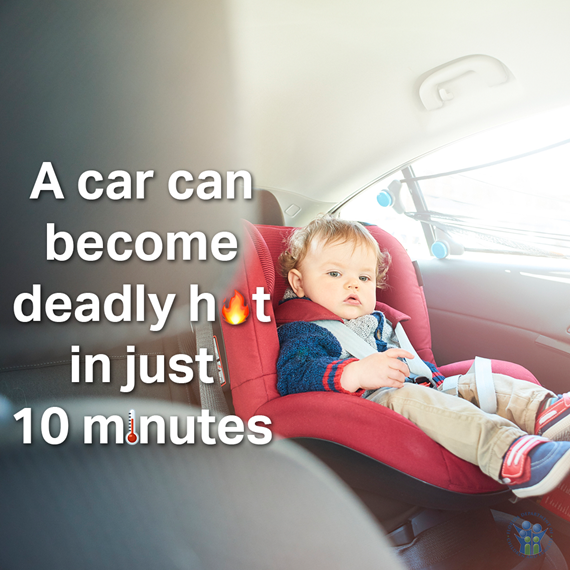
Hot Car Safety
Important messages to share
- Did you know that in just 10 minutes, the temperature in a parked car can rise 20 degrees? As temperatures rise this summer, please double check to make sure you do not leave your child in a hot car. For more hot car safety tips, visit Summer Safety Tips.
- Did you know that heatstroke is the leading cause of non-crash, vehicle-related deaths in children under 15? If you see a child alone in a car, call 911 and stay with the child until help arrives. If the child is not responsive, immediately get the child out of the car. For more information on hot car safety, visit https://www.healthychildren.org/.
Here are a few tips to make sure your child is safe this summer:
- Check the back seat before you leave the vehicle.
- Put your phone, purse, lunch, etc. in the backseat so you are sure to look before you lock your car.
- Do not let children play in or near vehicles - they may accidentally lock themselves in.
- If someone else is dropping your child off at daycare or camp, have them call you at drop off so you know they made it safely.
For more hot car safety information and videos, visit the link below!
https://bit.ly/Hot-Car-Safety- During the summer, a car can quickly heat to over 100 degrees. Parking in the shade or cracking a window is not enough to keep your child safe from the heat. Never leave a child alone in a vehicle and always #LookBeforeYouLock!
- You may not think it could happen to you, but a child can easily be left behind in a car when the parents are distracted, rushing, or changing routines. During the summer, temperatures in a parked car can be deadly. Make sure this mistake does not happen to you, always #LookBeforeYouLock!
- Did you know that in Florida, it is a criminal offense to leave a child unattended in a vehicle? Unfortunately, during the summer heat, the loss for a parent can be even greater than any ticket or arrest. Protect your children and never leave them in a car alone! #LookBeforeYouLock!
For more hot car safety information and videos, visit: https://bit.ly/Hot-Car-Safety. - Children are not the only ones who are at risk of the dangers from a hot car. Vulnerable adults who are left in a car are just as at risk of heatstroke as a child. Never leave a vulnerable adult unattended in a vehicle and always #LookBeforeYouLock!
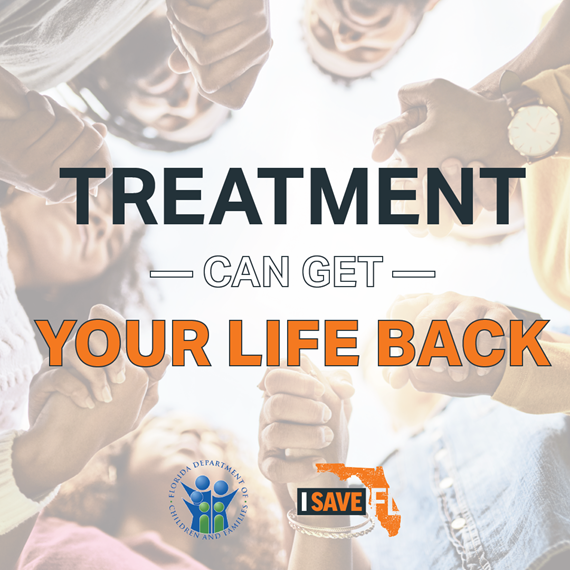
Fighting the Ongoing Opioid Battle
Important messages to share
iSaveFL.com to locate treatment facilities and overdose prevention medication.
- Recovery does not happen overnight. Asking for help from family, friends, co-workers, and others can make a big difference. Visit iSaveFL.com to for resources on how to find treatment.
- If you know or suspect someone is misusing opioids, ask if you can help. Find available resources at iSaveFL.com. Recovery is possible!
- Treatment can help people get their lives back before it is too late. Visit iSaveFL.com to locate resources.
- Opioid misuse often involves long-term follow-up and repeated care to be effective and prevent relapse. Recovery is a life-long process. Visit iSaveFL.com to locate available resources in your area.
- Flyer with additional messaging: What You Need to Know About Treatment and Recovery (cdc.gov).




